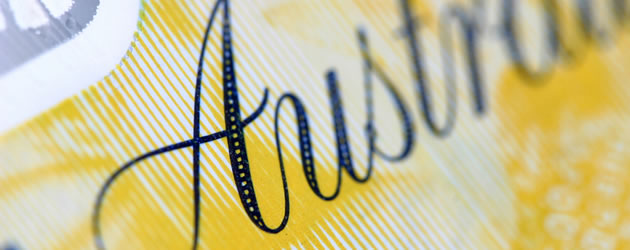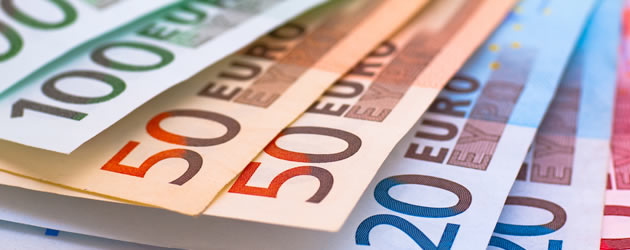- EUR Exchange Rates Fall – Dovish Draghi weighs
- AUD Strengthens – Positive services growth
- EUR/AUD Exchange Rate Forecast to Hold Losses – Eurozone retail sales data eyed
EUR/AUD Exchange Rate Cools as Market Sentiment Improves
In response to climbing global equities and improvement in commodity prices, heightened demand for high-yielding assets caused the Australian Dollar to advance versus most of its peers. Aiding the uptrend was better-than-expected Australian services growth in May.
As had been expected by the majority of analysts, the European Central bank (ECB) kept policy outlook unchanged. The accompanying press conference saw Draghi parrot previous assertions that the central bank will do all in its power to bring inflation back to target. He also called from greater reforms from individual governments to boost the impact of stimulus.
The EUR/AUD exchange rate is currently trending in the region of 1.5366.
(Preciously updated June 2nd at 16:55)
Euro (EUR) Exchange Rates Advance as ECB Forecast to Keep Policy Unchanged
The Euro to Australian Dollar (EUR/AUD) exchange rate advanced by around 0.6% on Thursday morning.
Given that policymakers are unlikely to vote to make any dramatic changes ahead of the result from the UK’s EU referendum, the European Central Bank (ECB) is forecast to hold the official cash rate and avoid expanding quantitative easing today.
However, the accompanying press conference will still be closely scrutinised by traders. Should President Mario Draghi hint that the next move is likely to be further policy easing, the single currency is likely to cool from current highs.
Despite the prospect of EUR losses in response to dovish ECB outlook, the Euro may still hold a comparatively strong position versus its major peers. This is because traders will feel that the Federal Reserve will be unlikely to tighten policy this month as policymakers will also wish to wait for the UK’s referendum vote.
Most economists still see further ECB easing ahead as inflation in the Eurozone remain well below the ECB’s target.
‘Our expectation is that the QE programme will be extended to the end of 2017 and we think that an announcement could be made in September,’ JPMorgan economist Greg Fuzesi said. ‘The medium-term inflation forecast remains low-ish, which creates the risk of an unanchoring of inflation expectations. Ending quantitative easing in March would also cause an unwanted tightening in financial conditions.’
The Euro to Australian Dollar (EUR/AUD) exchange rate is currently trending in the region of 1.5522.
Australian Dollar (AUD) Exchange Rates Decline on Damp Market Sentiment

Having advanced considerably during Wednesday’s European session, the combination of dampened market sentiment and profit taking caused the ‘Aussie’ (AUD) to soften versus most of its major peers.
Traders pulled away from high-risk assets today after concerns regarding the Bank of Japan’s (BOJ) negative rates stems the likelihood of additional stimulus measures. Bank of Japan board member Takehiro Sato stated that negative rates were counterproductive and the bank needs to find a more flexible policy framework suited to long-term inflationary gains.
‘Opinions are divided on the economic effects of the negative interest rate policy, and this is fuelling worries among the public,’ Sato said in a speech to business leaders in Kushiro. ‘I believe the negative rate policy has the effect of monetary tightening, rather than easing. When financial institutions face a negative spread, it’s reasonable for them to shrink their balance sheet rather than expand it.’
Also weighing on demand for the ‘Aussie’ (AUD) was the publication of the Federal Reserve’s Beige Book. The report showed that inflation and growth was rising across the states, cementing hawks hopes of a near-term Fed rate increase.
Mixed results from domestic data only added to AUD losses. Whilst April’s Trade Deficit narrowed beyond expectations, monthly Retail Sales saw shallower-than-expected growth in the same month.
The Euro to Australian Dollar (EUR/AUD) exchange rate dropped to a low of 1.5393 during Thursday’s European session.
EUR/AUD Exchange Rate: ECB Press Conference to Provoke Volatility
Whilst the ECB’s rate decision is unlikely to be hugely impactful, given the high likelihood of inaction, the accompanying press conference could be a different matter. If Draghi continues to parrot previous rhetoric of the need to do whatever it takes, the Euro could soften considerably.
The EUR/AUD exchange rate is likely to hold gains, however, given that market sentiment is showing little sign of a swift recovery. With that said, the ‘Aussie’ (AUD) may get a boost of US data prints poorly amid hopes of longer delays to a Fed rate hike.
The Euro to Australian Dollar (EUR/AUD) exchange rate reached a high of 1.5536 during Thursday’s European session.



